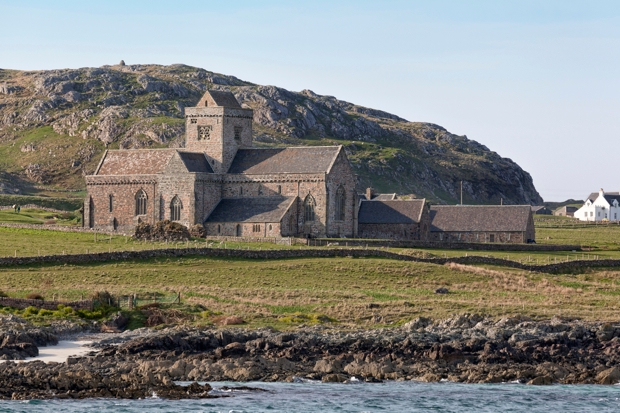A few hours after the final result of the Scottish referendum was announced, I visited the cemetery at Cille Bharra on the Outer Hebridean island of Barra. It’s the burial place of Sir Compton Mackenzie (1883-1972). I wondered what this versatile character, World War I British spymaster, novelist, and Catholic convert whom the students at Glasgow university elected as their rector in 1931, would have made of the result.
He believed that the Catholic faith had greatly influenced the nations’s long-term personality and felt that its soul had shrivelled with the retreat of that faith to remote outposts such as Barra, where he had his home in the 1930s.
An influx of Irish immigrants restored a Catholic presence in Scotland after 1800. The overnight results show that the descendants of this community must have voted disproportionately for independence. Its remaining strongholds, North Lanarkshire, West Dunbartonshire, Dundee and, above all, Glasgow are among the few areas of Scotland that voted Yes.

Get Britain's best politics newsletters
Register to get The Spectator's insight and opinion straight to your inbox. You can then read two free articles each week.
Already a subscriber? Log in







Comments
Join the debate for just $5 for 3 months
Be part of the conversation with other Spectator readers by getting your first three months for $5.
UNLOCK ACCESS Just $5 for 3 monthsAlready a subscriber? Log in